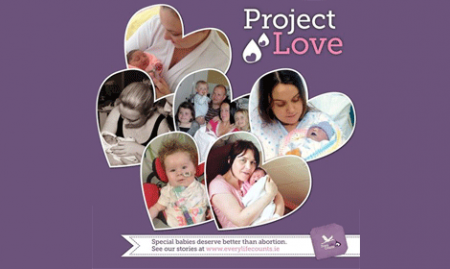NI abortion law: NIHRC to begin legal challenge
Northern Ireland's abortion legislation is to be challenged in court by the Northern Ireland Human Rights Commission (NIHRC).
It is seeking a change in the law to allow abortion in cases of rape, incest or "serious malformation" of a foetus.
Northern Ireland's abortion law differs from the rest of the UK.
Abortion is a criminal offence in Northern Ireland, governed by the Offences Against the Person Act 1861, sections 58 and 59, and the Criminal Justice Act (NI) 1945, section 25.
'Ill-timed and unnecessary'
The NIHRC said that it in its view, the existing law is "a violation of human rights".
In a statement, it said it has "repeatedly advised" Northern Ireland's Department of Justice (DOJ) of this view since April 2013 and has now notified the department that it intends to issue legal proceedings in the High Court.
The DOJ criticised the commission's move and described the legal action as "ill-timed and unnecessary."
The department has recently recommended a change in the law to allow abortion in cases where the foetus has a lethal abnormality.
It is currently running a public consultation on the issue, and has also asked for opinions on whether abortion should be legalised in cases of rape.
Justice Minister David Ford has not made any recommendation on the issue of termination in the case of sexual crimes.
The NIHRC statement said: "The recent consultation published by the DOJ does not commit to making the changes that are necessary.
"It deals with cases of lethal foetal abnormality while only seeking public opinion on cases of sexual crime including rape and incest."
'Correct forum'
In a statement, a DOJ spokesperson said: "The minister for justice is consulting the public on abortion, with a view to the elected assembly debating and passing legislation on this sensitive subject."
They added that the ongoing public consultation was the "correct forum in which a respected human rights institution can make its views known".
"An appropriate process is therefore under way which is seeking to review and adjust the current law. The legal action being taken by the NIHRC is therefore ill-timed and unnecessary," the DOJ spokesperson said.
The commission said it recognised "the sensitivities" of its legal challenge.
However, it added: "Given the vulnerability of women and girls in these situations, the commission considers it appropriate to use its powers and bring this legal challenge in its own name."
'Right to life'
Anti-abortion campaign groups have condemned Mr Ford's proposal to change the abortion law.
When the consultation was announced in October, the director of Precious Life, Bernadette Smyth, said: "The core ethical principle which must underpin this discussion is that every child deserves the right to life regardless of how short their life may be, and regardless of the circumstances of their conception."
Last month, a group of parents whose children had been diagnosed with "life-limiting" medical conditions took their anti-abortion campaign to Stormont.
Organised by the Every Life Counts support group, the campaign opposes any liberalisation of the existing abortion law and calls on the health authorities to provide better perinatal hospice care for terminally ill babies and their families


